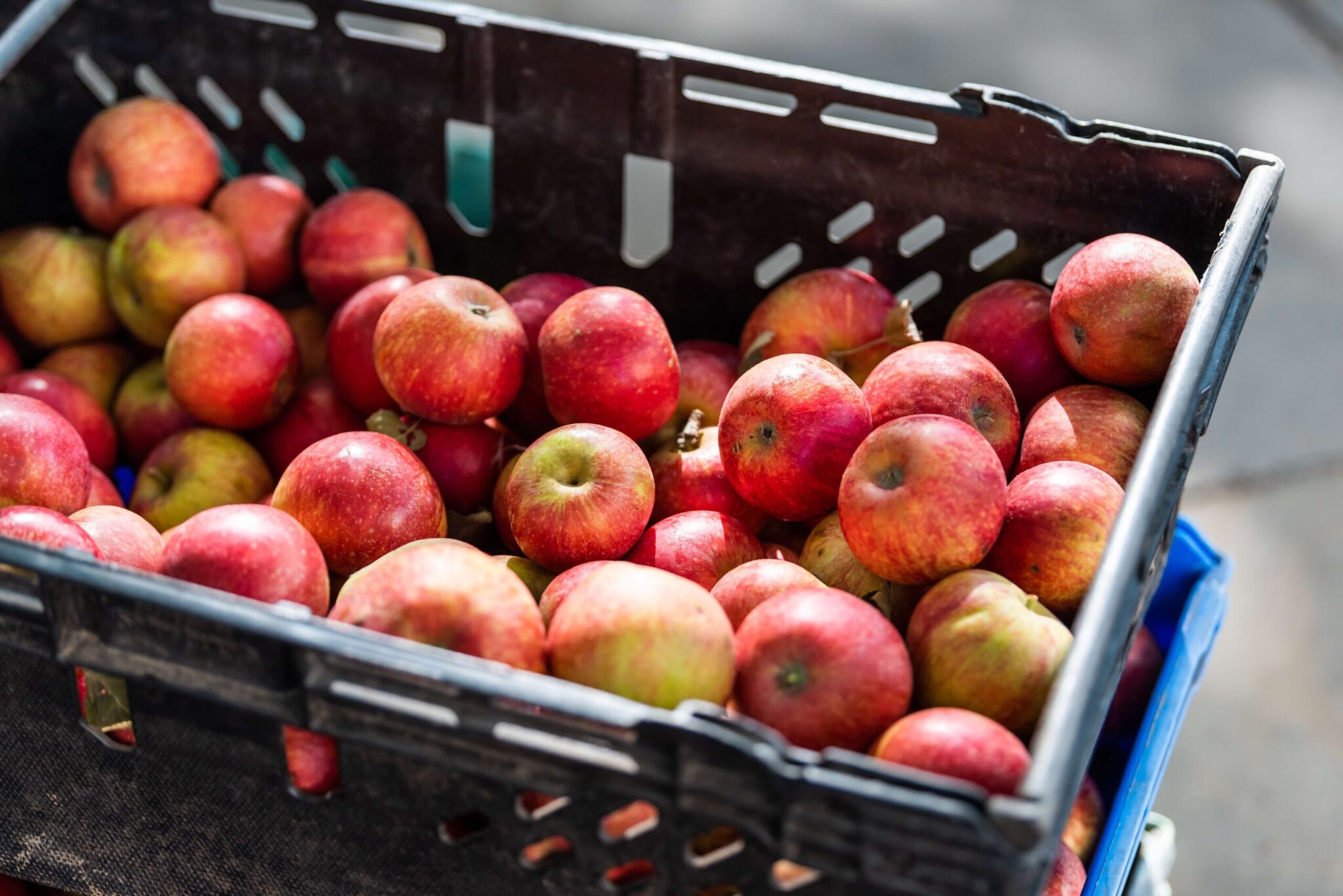This Stop Food Waste Day (April 30) UK climate charity Carbon Copy is helping people avoid food waste at home, in their community and at work. The focus comes as part of the charity’s 25 Big Local Actions in 2025 campaign, which is exploring different ways that people can work together to have a positive impact for climate and nature.
Food waste is a big issue globally and collectively in the UK we throw away around 10 million tonnes of food a year. Much of this waste happens in households, but there are other parts of the food supply chain where surplus is a big issue.
The food that is wasted is often perfectly edible, with the issue stemming from over production and issues in the food supply chain. However, redistribution of surplus food is not the answer.
Speaking on the latest episode of the Carbon Copy Podcast, Kate Page, Sustainability Manager at London-based corporate catering business Fooditude says:
“A client might say, ‘I want to feed 280 people, but I don’t want to run out. So let’s make it for 340 people.’”
Kate goes on to explain that if the food is put out on tables, and fewer people eat than expected, it then can’t be redistributed because of food safety regulations.
“People really like having food for show,” Kate continues, “it’s still quite a big issue and people don’t really seem to understand. It’s one of my biggest challenges.”
Kate’s comments are echoed by Corin Bell, co-founder of Open Kitchen, a social enterprise tackling both food waste and food poverty, as well as providing catering for businesses and events across Greater Manchester.
“As a food waste organisation we have always tried to advise our customers quite honestly. If you are catering an all-day event with 150 people, you don’t need pastries in the morning, a full lunch and cake in the afternoon – it’s a recipe for a lot of food waste!”
Corin and her team have recently launched a programme called Menu for Change, in partnership with Marketing Manchester and the Greater Manchester Environment Fund, to encourage businesses to donate the savings from reduced corporate catering to community initiatives across Greater Manchester.
“The funds are being used in two different ways,” Corin explains. “We supply community organisations with healthier, more sustainable products, moving beyond food waste to quality nutrition; and at the same time, we support local food growing projects, which are helping people to produce their own highly nutritious sustainable food.”
Carbon Copy’s Head of Communications and podcast host, Isabelle Sparrow says:
“Often, food is wasted when there is just too much at any given point in the supply chain. Whether it’s a glut of a certain crop that gets left in the field, over-supply of a packaged product in a supermarket, or food that has been served at a function so cannot be redistributed; it’s a sad state of affairs, particularly given the millions of people in the UK living in poverty.
“There are many different ways to approach tackling this issue. Businesses like Fooditude and Open Kitchen are helping to prevent food waste happening in the first place through providing advice and guidance to their clients; but there are other organisations, like FareShare UK, making a different kind of impact, by focusing on redistributing produce and ensuring that any surplus is used for good.
“What we learnt in speaking to the team at FareShare is that there is a real challenge around balancing the cost of that redistribution with the perceived value of the food. Unfortunately, in many cases it costs less for perfectly edible food to be thrown away, than for it to be taken and distributed to places that can use it. FareShare is working to lobby the government to make the decision to save the food easier, and one that makes financial as well as environmental sense.”
To find out more about taking action to reduce food waste, and to listen to the latest episode of the Carbon Copy Podcast, visit: https://carboncopy.eco/takeaction/reduce-food-waste.





